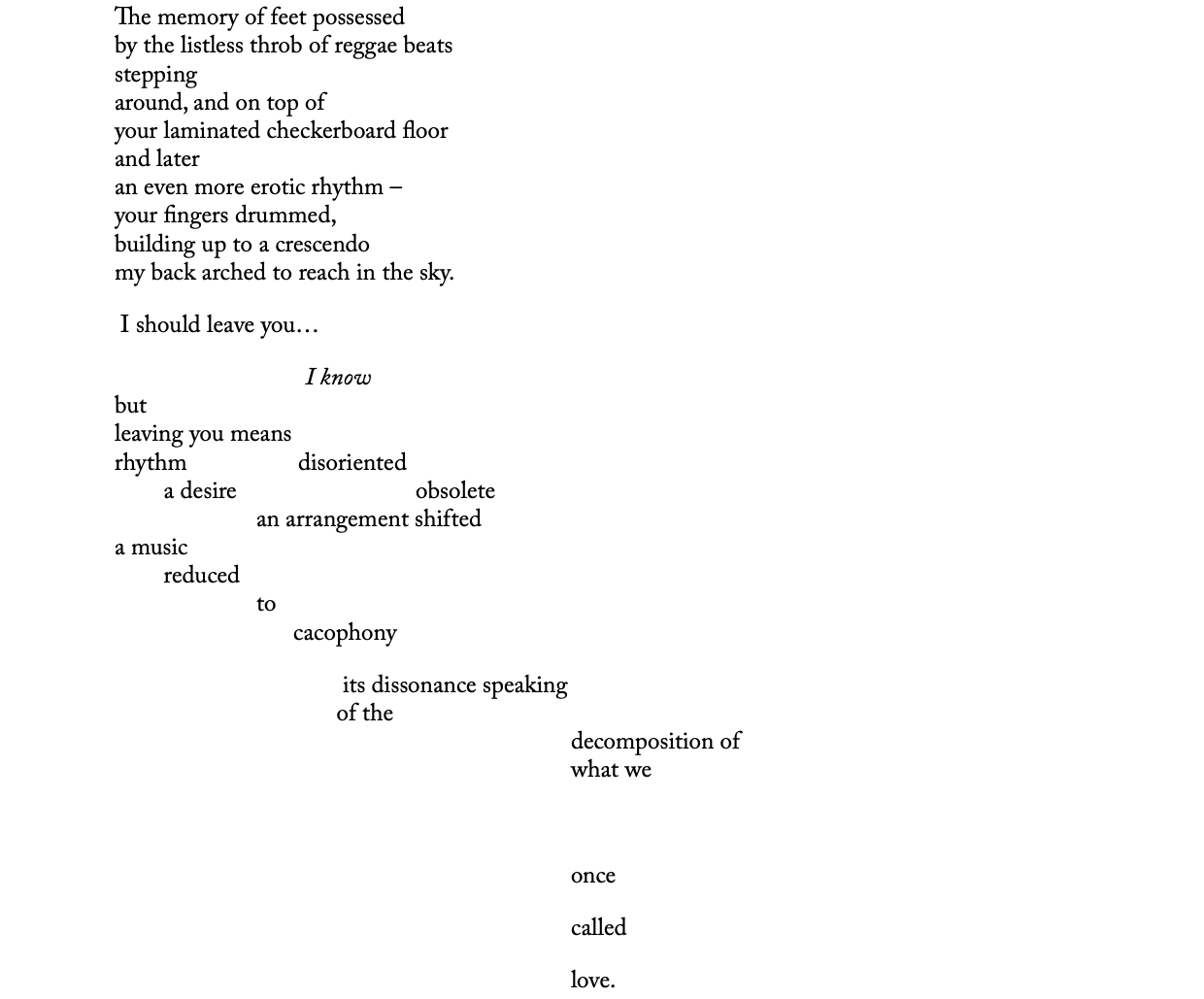Pooja Nansi (b. 1981)
FEATURES / TRACK CHANGES
I should leave you I know
Written by Pooja Nansi
Dated 19 Jun 2020
This poem, titled “i should leave you i know”, was written circa Sep 2004:
Which makes it about 16 years old, at the time of this revision. It was published in my first collection Stiletto Scars, and I was very much at that time in the early stages of experimenting how my words could play with spaces on the page and in performance. I was also somewhat limited in my understanding of how much freedom I could have with form, and so the original version appears in traditional looking stanzas which I hardly find myself utilising in my work now.
The first thing I paid attention to in my edits was how I wanted to present the poem visually. For me, it’s important to indicate how I mean for the poem to sound: I have started to use the forward slash or virgule as a kind of musical scale marker for where I employ a breath and / or tempo break in my reading aloud of the poem. Sometimes they also indicate a break or disruption in the poem’s thought. I find them to be a much more honest marker of space / thought / disruption than a line / stanza break, especially in my practice as a poet who values the spoken word as much as the written one. I kept the intentional typographical messiness of the ending of the poem intact because even 16 years on, I think it captures the disintegration of the poem and of its memories in exactly the staccato I want it to, for both the visual eye and for what it does when you try to read it out loud.
Secondly I did what I always advise my creative writing students to do with poetry – trim all fat. Cut, compress, condense. I cut any words that didn’t feel crucial to the meaning of the poem, I condensed lines and images to make them tighter and I tried to boil the poem down to its essentials. As a result I think this allows the poem a more intensely coloured, accumulative collection of memories which makes their disintegration at the end feel like a more impactful loss.
As a last point of reflection, my editing process always involves reading the poem out loud to get a sense of its rhythm and musicality. So many of the cuts and shifts I made were primarily based on the possibilities they offered for the movement, sound and shape of the poem in my own mouth.





